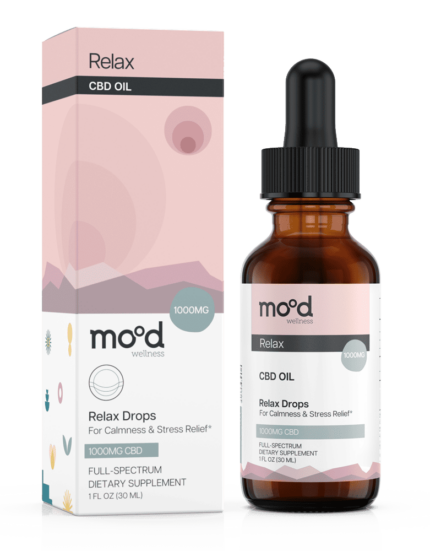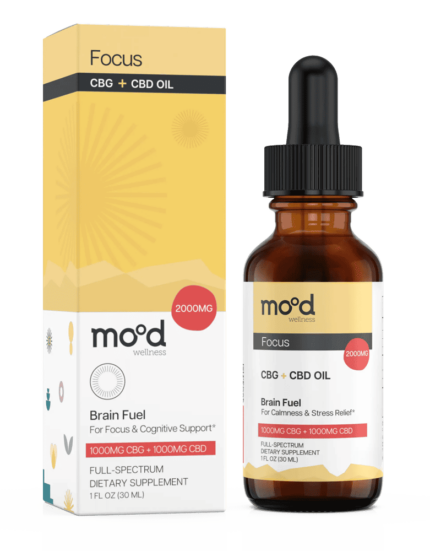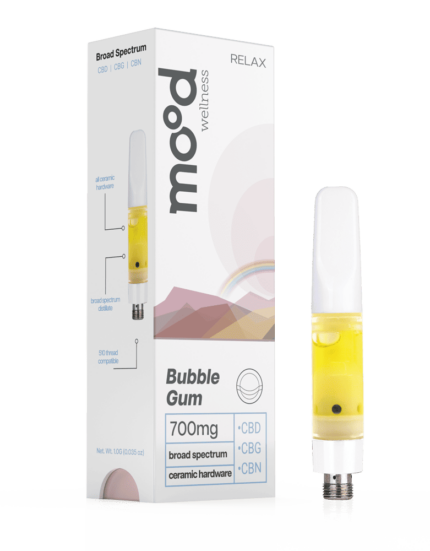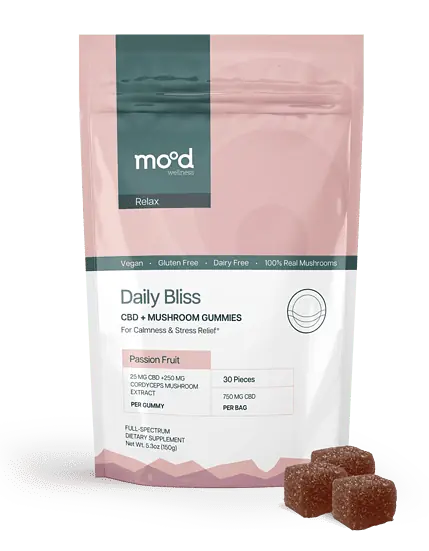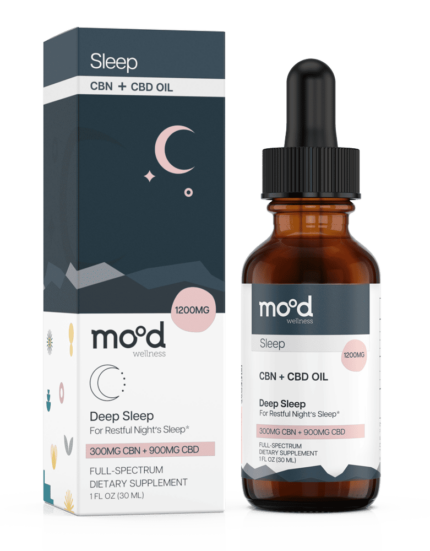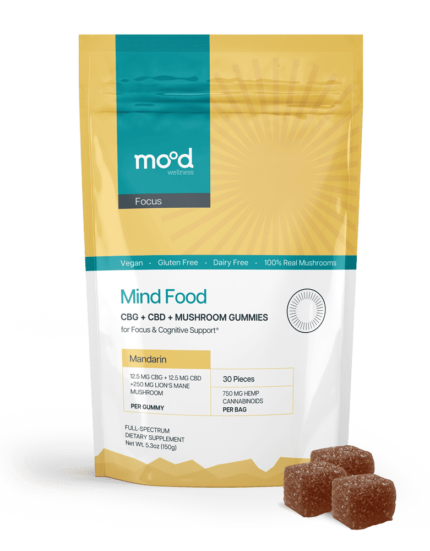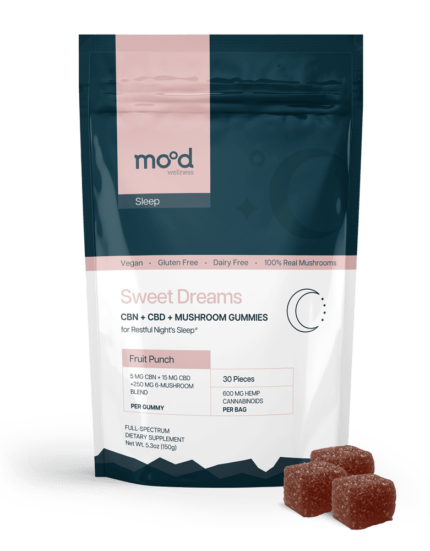What Is CBG?
In the vast world of cannabis, there’s a rising star that’s beginning to outshine its more well-known siblings. Meet CBG, or cannabigerol, a cannabinoid that’s making waves in the wellness industry for its unique properties and potential health benefits.
Whether you’re a wellness enthusiast, a curious consumer, or a health professional, this comprehensive article will take you on a journey through the fascinating world of CBG.
Understanding CBG: The Mother of All Cannabinoids
CBG, short for cannabigerol, is a non-psychoactive cannabinoid found in cannabis and hemp plants. While it may not be as well-known as THC or CBD, Cannabigerol is actually the chemical parent of these more famous cannabinoids.
In the early stages of a cannabis plant’s growth, a compound known as CBGA (Cannabigerolic Acid) is produced. This compound is the initial stage of all cannabinoids. As the plant matures and is exposed to more UV light, CBGA breaks down and transforms into THCA and CBDA, the acidic precursors to THC and CBD. Unless specifically bred for high Cannabigerol content, most cannabis plants will only produce a small amount of CBG.
CBG’s role doesn’t stop at being a precursor to other cannabinoids. It also interacts with the body’s endocannabinoid system (ECS), a complex network of receptors that regulate various physiological processes. Unlike other cannabinoids, CBG has an affinity for both CB1 and CB2 receptors in the ECS, potentially enhancing its therapeutic effects.

CBG Strains and Hemp CBG
When it comes to Cannabigerol production, not all cannabis strains are created equal. Most strains contain relatively low levels of CBG, but a select few are bred specifically to produce higher levels of this cannabinoid.
These strains, including popular ones like White CBG and Stem Cell (known for its calming effects), are often used in the production of Cannabigerol products.
Interestingly, hemp, a variety of the cannabis plant, naturally produces higher levels of Cannabigerol and lower levels of THC compared to marijuana plants. This makes hemp-derived Cannabigerol products a popular choice for those who want to avoid the psychoactive effects of THC while reaping the potential benefits of Cannabigerol.
The Science Behind CBG: A Deep Dive
CBG, or Cannabigerol, is a cannabinoid that operates through its interaction with the endocannabinoid system (ECS), an intricate cell-signaling mechanism within the human body.
The ECS is pivotal in maintaining balance in the body by controlling a variety of functions and processes, such as sleep, mood, appetite, and memory. Like other cannabinoids, Cannabigerol is thought to enhance the ECS’s performance, potentially offering an array of health benefits.
Cannabigerol stands out due to its unique ability to interact with both the CB1 and CB2 receptors within the ECS. Research indicates that CBG can bind directly to these receptors, thereby modifying the effects of other cannabinoids.
This is a contrast to CBD, or Cannabidiol, which has a low affinity for these receptors. Instead, CBD interacts with a variety of other receptors in the body, including the 5-HT1A serotonin receptor, the TRPV1 vanilloid receptor, the GPR55 receptor, and the Fatty Acid Amide Hydrolase (FAAH).
These interactions contribute to CBD’s potential effects on mood, pain perception, inflammation, and even anti-cancer properties.
The unique interaction of Cannabigerol with the ECS, specifically its ability to bind to both CB1 and CB2 receptors, is one of the reasons why it has become a focal point for researchers. CB1 receptors are predominantly found in the brain and central nervous system, while CB2 receptors are more common in peripheral organs and cells associated with the immune system. Therefore, CBG’s interaction with both types of receptors suggests it could have a wide-ranging influence on both the nervous and immune systems.
Preliminary studies have suggested that Cannabigerol may possess anti-inflammatory, neuroprotective, and antibacterial properties, among others. However, while these findings are promising, more research is needed to fully comprehend the potential benefits and mechanisms of this powerful cannabinoid. This ongoing research underscores the complexity and potential of cannabinoids in health and medicine.

The ‘Entourage Effect’: A Symphony of Cannabinoids
The ‘entourage effect’ is a concept that has been gaining traction in the cannabis community. It suggests that the various compounds in cannabis, including cannabinoids, terpenes, and flavonoids, work together synergistically to enhance the plant’s overall effects. This is why full-spectrum cannabis products, which contain a variety of cannabinoids and other compounds, are often preferred over products that contain just one isolated cannabinoid.
Cannabigerol plays a significant role in the ‘entourage effect’. As a non-psychoactive cannabinoid, CBG doesn’t produce the ‘high’ associated with cannabis. However, it’s thought to enhance the therapeutic effects of other cannabinoids, potentially making cannabis products more effective. This is an area of ongoing research, and scientists are excited to uncover more about Cannabigerol role in this fascinating phenomenon.
The ‘entourage effect’ is like a symphony, with each cannabinoid playing its part to create a harmonious effect. Cannabigerol, with its unique ability to interact with other cannabinoids, is like the conductor, guiding and enhancing the performance of the other players. As we continue to explore this concept, it’s clear that CBG is a key player in the cannabis orchestra.
The Potential Benefits of Cannabigerol
Research into the benefits of Cannabigerol is still in its early stages, but the preliminary findings are nothing short of exciting. Here are some potential benefits that researchers are exploring:
- Neuroprotective Effects: CBG might be a brain’s best friend. A 2015 study found that Cannabigerol has neuroprotective effects, suggesting potential for treating neurodegenerative diseases. This could be a game-changer for individuals dealing with cognitive and focus issues.
- Antibacterial Properties: In the fight against harmful bacteria, Cannabigerol could be a valuable ally. It has been found to exhibit antibacterial properties, particularly against methicillin-resistant Staphylococcus aureus (MRSA), a type of staph bacteria that is resistant to several antibiotics. This could open up new avenues in the fight against antibiotic-resistant bacteria.
- Eye Health: Cannabigerol may also be beneficial for treating glaucoma, as it has been shown to reduce intraocular pressure. This could provide a new approach to eye health, particularly for those dealing with conditions like glaucoma.
- Inflammatory Bowel Disease: If you’re tired of tummy troubles, CBG might offer some relief. A study on mice suggested that Cannabigerol could reduce the inflammation characteristic of inflammatory bowel disease. This could provide a new natural alternative for those dealing with gut health issues.
- Skin Health: Cannabigerol could be a skincare superstar. Some research suggests that CBG may have potential benefits for skin health, including reducing inflammation, soothing irritation, and reducing redness. This could revolutionize the skincare industry, providing a natural alternative to traditional skincare products.
The Future of CBG: A New Era in Wellness
As we continue to delve into the world of cannabinoids, CBG is emerging as a star player. The potential applications of Cannabigerol are expanding, with researchers studying its use in treating a variety of conditions, from pain and nausea to even skin disorders.
But the future looks bright, and CBG is certainly a cannabinoid to watch! It’s like the dawn of a new era in wellness, and Cannabigerol is leading the charge. So, whether you’re a wellness enthusiast, a curious consumer, or a health professional, it’s time to sit up and take notice of this cannabinoid.
CBG vs. CBD: What’s the Difference?
Both CBG and CBD are non-psychoactive, meaning they won’t get you ‘high’. They interact differently with the endocannabinoid system (ECS), with Cannabigerol interacting with both CB1 and CB2 receptors, while CBD primarily interacts with other receptors.
When it comes to potential benefits, CBG shows promise in areas like neuroprotection, antibacterial properties, eye health, gut health, and skin health. CBD, on the other hand, is known for its potential benefits in treating conditions like stress, auto-inflammatory diseases, and neurodegenerative diseases.
In terms of legality, both CBG and CBD are legal in most places, depending on the source and THC content. It’s always important to check the laws in your specific location.
Finally, while CBD has been extensively researched, CBG is less studied but is starting to gain attention in the scientific community. As research progresses, we may find more unique benefits and uses for each of these cannabinoids. So, whether you’re team Cannabigerol, team CBD, or team both, there’s plenty to be excited about!
| CBG | CBD | |
| Psychoactive Effects | No | No |
| Interaction with ECS | Interacts with both CB1 and CB2 receptors | Primarily interacts with other receptors like: 5-HT1A, TRPV1, GPR55. |
| Potential Benefits | Neuroprotection, antibacterial properties, eye health, gut health, skin health | Stress management, auto-inflammatory properties, neuroprotection |
| Research Status | Emerging research, less studied than CBD | Extensively researched |
How to Use CBG
CBG can be consumed in a variety of ways, each offering its own unique experience. Here’s a quick rundown of some popular methods:
| Method | Description |
| CBG Oil | CBG oil can be taken sublingually (under the tongue) for quick absorption into the bloodstream. It can also be added to food or drink. |
| CBG Gummies | For those who prefer a tasty treat, CBG gummies are a popular choice. They offer a convenient and discreet way to consume Cannabigerol. |
| CBG Vape | Vaping CBG provides fast effects as it’s quickly absorbed through the lungs. However, it’s not recommended for those with respiratory issues. |
| CBG Topicals | Cannabigerol can also be applied topically in the form of creams or lotions. This is a great option for targeting specific areas of discomfort. |
| CBG Capsules | For those who prefer a more traditional method, CBG capsules can be taken orally and are a convenient way to incorporate Cannabigerol into your daily supplement regimen. |

Side Effects: What You Need to Know
While CBG is generally considered safe and well-tolerated, like any substance, it can potentially cause side effects, especially when taken in high doses. Here are some side effects that have been reported:
- Tiredness: High doses of CBG can cause feelings of fatigue and grogginess.
- Diarrhea: Some people have reported diarrhea after taking high doses of CBG. This is likely due to the digestive system signaling that it doesn’t need such a high volume of the compound.
- Dry Mouth: Consuming CBG can temporarily impact the ability of our salivary glands to produce saliva, leading to a dry mouth. Drinking water can help alleviate this side effect.
- Changes in Appetite: Cannabigerol can affect your appetite, either increasing or decreasing it. This effect should pass once the Cannabigerol is no longer active in your body.
- Changes in Weight: Some people have reported changes in weight after taking high doses of CBG over a long period. This is likely due to CBG’s potential effects on appetite rather than metabolism.
Exploring the Potential of CBG
The potential benefits of CBG are vast and varied, and research into its therapeutic properties is ongoing. From its potential neuroprotective effects to its possible antibacterial properties, CBG is showing promise in a variety of areas. It’s also being explored for its potential benefits for eye health, gut health, and skin health.
As we continue to delve into the world of cannabinoids, Cannabigerol is emerging as a star player. The potential applications of CBG are expanding, with researchers studying its use in treating a variety of conditions, from pain and nausea to skin disorders and even cancer.
But the future looks bright, and Cannabigerol is certainly a cannabinoid to watch! It’s like the dawn of a new era in wellness, and CBG is leading the charge. So, whether you’re a wellness enthusiast, a curious consumer, or a health professional, it’s time to sit up and take notice of Cannabigerol.
Conclusion
CBG, the ‘mother of all cannabinoids,’ is a promising area of research in the wellness industry. Its potential benefits for neurological disorders, inflammation, appetite stimulation, and antibacterial activity are exciting areas of exploration. But let’s not forget its potential for promoting skin health, which is backed by both in vitro and clinical studies.
At MoodWellness, we’re committed to staying at the forefront of wellness research, providing you with the latest information to help you make informed decisions about your health. As always, it’s important to consult with a healthcare provider before starting any new wellness regimen.
Stay tuned for more updates on Cannabigerol, and join us on this exciting journey of discovery in the world of cannabinoids!
Disclaimer: This article is for informational purposes only and does not constitute medical advice. The information contained herein is not a substitute for and should never be relied upon for professional medical advice. Always talk to your doctor about the risks and benefits of any treatment.
Frequently Asked Questions About CBG
No, CBG will not get you high. It is mildly psychoactive, meaning it can relax the mind and body, but it does not impair reasoning or cause hallucinations.
Some users report using CBG to help reduce stress and tension. However, more research is needed to confirm these effects.
In the U.S., hemp-derived CBG is legal on the federal level, thanks to the 2018 Farm Bill.
CBG is gaining popularity due to its potential health benefits and its unique role as the ‘mother of all cannabinoids’.
CBG itself should not cause you to fail a drug test, which typically looks for THC, the psychoactive compound in cannabis. However, some CBG products may contain trace amounts of THC, depending on how they’re made.
